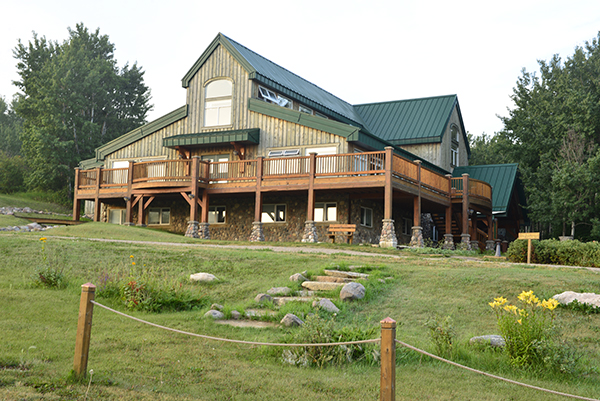Somebody turn on the light, please. . .
 |
| Shekinah Timber Lodge |
Light and dark make powerful metaphors for all kinds of human experience. The prophets and the gospels are full of their illustrative power. The passage from John must have come to mind to many who watched and sought to understand the meaning of the Ford/Kavanaugh hearing on Thursday.
As an attempt to bring Ford's accusation and Kavanaugh's defence into the light, the process failed, the only clue to where light and dark might lie rested in the demeanour of the two witnesses. Judging the veracity of Ford's accusation and Kavanaugh's defence came down to groping in the darkness of bias, prejudices and personal interest.
People perpetrating crimes—including sexual interference or assault—obviously count on darkness to hide their acts and so victims frequently can't produce any corroborating evidence or call forward any witnesses. Proving guilt “beyond a reasonable doubt” works in favour of the accused, who under our legal system is “innocent until proven guilty,” as it has to be.
What might serve as absolute proof when we wade in the darkness of “he said, she said” doesn't exist. And if proof can't settle a case in the judicial-justice sense, then the faint light of human judgment must bear the weight of settling cases like Ford/Kavanaugh, and human judgment is not made of stone, but of jello.
In our judicial systems, the final arbiters are the supreme courts. Theoretically skilled in interpreting laws, rules of evidence, and with experience in weighing the biases against the facts, they purport to be the best we can do in rendering impartial, fair judgments. Given that they are also humans with all the weaknesses that that implies, can we ever be sure that their judgments are the best we can do?
“Do justice, love mercy, walk humbly with your God,” the prophet Micah urges. Put another way, “live your life in the light.” If there will ever be a universal, peaceable kingdom on earth, it will not be governed by men or women who must count on darkness to cover their tracks. The openness and honesty, the love for human kin urged by Micah, reiterated by Christ again and again, opens the narrow gate to kingdom justice and righteousness.
Imagine a world in which the supreme court found itself with nothing to do.
“Therefore, if your whole body is full of light, and no part of it dark, it will be just as full of light as when a lamp shines its light on you.” (Luke 11:36, NIV)



Comments
Post a Comment